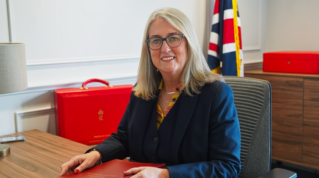I was in a meeting the other day, talking about how the schools bill is transforming the education sector. When I was asked to explain how, the first thing that popped into my head was the language of Love Island.
It wasn’t an obvious comparison, but the more I thought about it, the more it resonated. Perhaps it’s because, after a summer of being forced to watch the reality show with my children, it has ingrained itself in my mind forever. Or perhaps we all need a bit of fun and it’s an accessible and jargon-free way of explaining the complex transition that’s happening in our sector.
As we welcome our fifth education secretary in a year and wait to learn the new prime minister’s priorities and plans, the impact of the schools bill is already being felt – even in spite of uncertainty surrounding it. With all schools expected to be part of an academy trust by 2030, I’ve never been pulled for so many chats by headteachers and leaders of smaller trusts who are open to getting to know us.
Whenever I go to an event, I see people talking quietly to each other to see where their heads are at. Everyone is getting to know everyone else. They are not exclusive; they want to keep their options open until they’re ready to make a final decision. Until then, their heads can be turned.
Schools need to talk to different trusts before they commit. It’s crucial to find a good connection and this is about more than muscles – they must look beyond a trust’s brand and marketing and get to know its ethos and values. Are these in harmony with their own? Do they share the same beliefs and vision for the future? Are they a good long-term fit?
Schools need to talk to different trusts before they commit
Before they put all their eggs into one basket, schools should also talk to other headteachers of schools in the trust to find out what they think, so that they have the full picture. This important second opinion can make the difference as to who they eventually decide to couple up with.
From a trust’s point of view, they need to ensure that any growth doesn’t have a negative effect on their existing schools and that, fundamentally, it will help them to achieve their overall aim of improving children’s education. What is the risk to the trust of a new school joining? Will the school get on with the rest of the family? Will it benefit pupils long term?
And behind the scenes, trust boards and governors are watching these blossoming relationships. Their opinion, just like the parents who appear towards the end of Love Island, is crucial. And sometimes, as in the case of 2022 contestant Paige Thorne, they may not approve of the match.
Essentially, any commitment should be made with thought and consideration on both sides. Trusts and schools should not look for seasonal partners, they must be in it for the long term, to build strong partnerships and work collaboratively so that they can really make a difference.
We had a great time coming up with Love Island analogies in that meeting – the list is endless! – and by the end our staff understood our growth plan better without any mention of corporate terms like takeover or merger. The comparison, while only a bit of fun, does actually help to communicate the sector’s current mood. The schools bill may not have been passed yet but we’re already cracking on.















Your thoughts